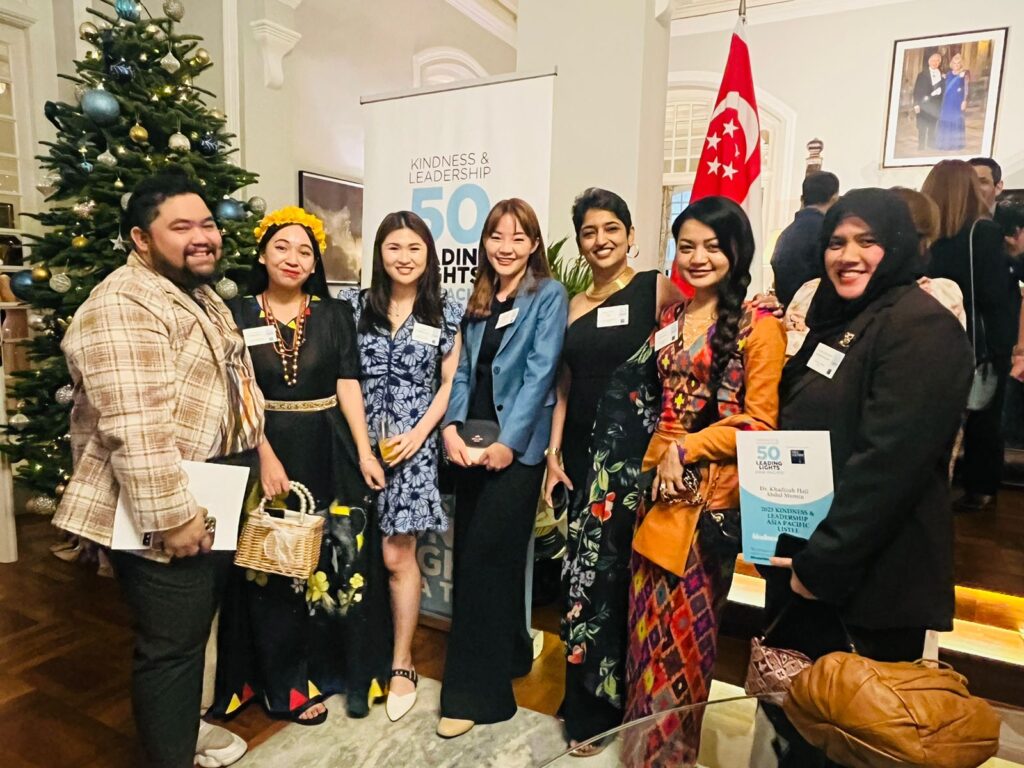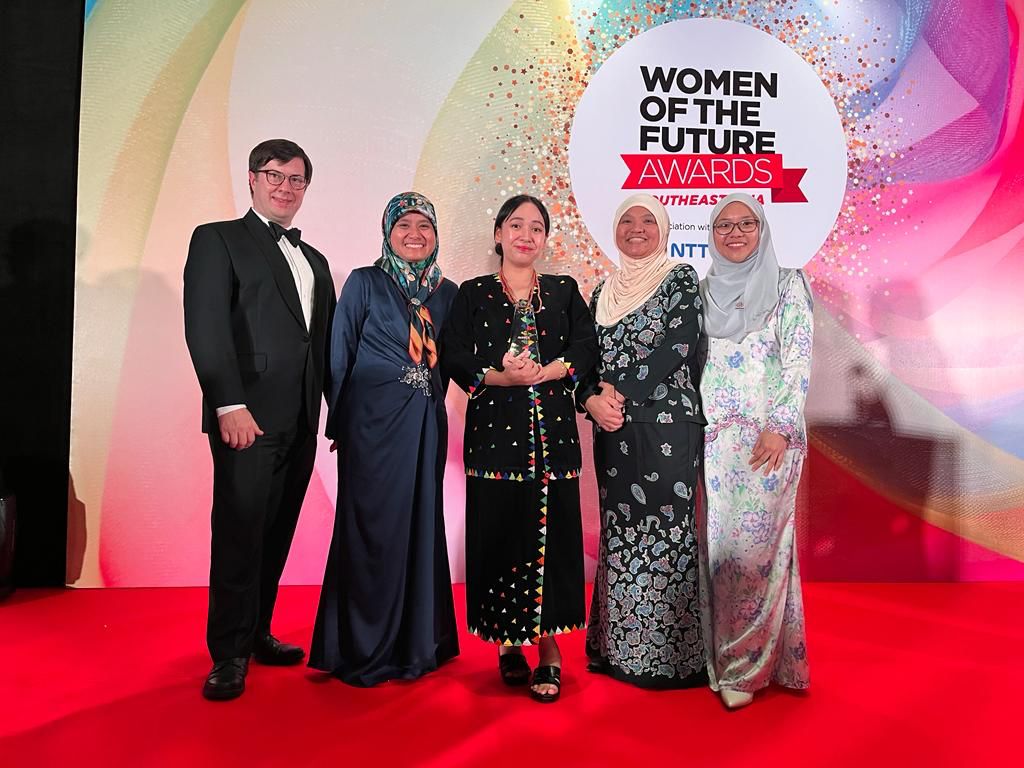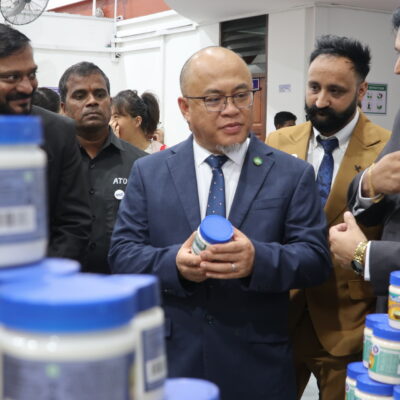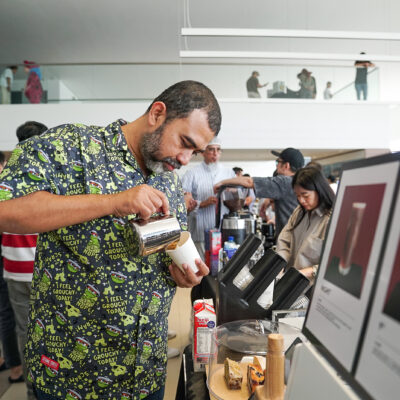Written by Ying Chia |
Creating art was intuitive and vital for Tina Afiqah growing up — the owner of local publishing house ParaBelle Studios and author of popular local titles like ‘The Bubble Princess & The Stone Heart’ which was ParaBelle’s first book, this animal-loving introvert proves that being authentic is the best road to personal success — case in point, she is the 2023 ‘Women of the Future’ winner for the Arts & Culture category! Tina also happens to be a certified Art Therapist who has been striving to share the joy and critical support that creativity can give in times of emotional need. Despite her impressive educational credentials graduating from the University of Derby, she struggled to find sustainable work in the field which ultimately, albeit accidentally, led her towards entrepreneurship. Tina is unabashedly vulnerable and eloquent with her opinions during our insightful chat, which was a refreshing experience (particularly in an Asian culture where avoidance is the key to survival) and her steadfast dedication to the arts makes an impressive mark on the country’s small creative scene.
Where did you get your love of art from and the idea to become a creative therapist?
TINA AFIQAH: It’s because my mum was a lecturer and she kept moving for her PhD and placements, so going to different countries, it was always hard for me to catch the language quickly. I started speaking quite late, maybe when I was around three years old? But before that, I didn’t know how to communicate effectively with other people and a universal way that people could understand me was through drawing and writing. So that was my main medium of how to communicate with others. And I’ve been drawing ever since I was young.
I was actually bullied in high school because I was always so quiet and a bit awkward and art was the main thing that always kept me safe and relaxed so during times — and this is not really allowed for teachers but usually during assembly or break times, my art teachers would let me just stay in the classroom and just like do my own thing. And then, I thought maybe this is something that I could do, in hopes of helping others who might have anxiety as well. My teachers is the one who introduced me to creative therapy. At that time when I was looking for universities, there were only two other universities in the whole of the U.K. that offered this course.
How did you come to find your niche here and become so comfortable in your own skin?
TINA AFIQAH: I think I’ve been in the creative industry for many four years now, but I’m still probably finding my place and where I would fit in, so … not comfortable quite yet, but still learning with trial and error. I identify that there’s a lot of other Bruneian artists, authors and animators, so for us as a company, I always try to see how I can work with them instead of competing, especially since the industry in Brunei is so small. I feel like we should work together and I try to find ways to collaborate with them and also still make what we come up with as unique as it can be in its own niche.
That might seem an obvious question but do you think that your heritage informs that way you approach your artistic endeavors?
TINA AFIQAH: I feel like maybe so? Because I notice in Murut heritage there’s a lot of patterns. It’s very artistic and they do a lot of bead and wood work, so maybe that has always been part of my culture as well. ‘Cause I notice that a lot of aunties who are still very closely attached with their Murut heritage … they tend to be quite artistic as well.
What has been the greatest challenge to overcome in terms of showing people the positive impact of art?
TINA AFIQAH: I think the greatest challenge is that art is very subjective and different people have specific preferences that they enjoy. So having to work with other artists before was a bit tricky because I know that I’m an introvert and have a very soft voice so learning to work with colourful, loud voices and personalities at that time was quite tricky for me.Trying to stand on my ground and make decisions was a bit of a challenge that started when we first implemented the company.
Trying to find a brand name was always difficult as well because people had different ideas about that too. And for me, my vision was that I wanted to create an art style where people see it and they know it’s ‘Bruneian’. Like when people see anime, they know it’s Japanese, it it’s Western, they know it’s probably American, so you know, trying to find something fresh, it was quote a challenge at first.
And how would you define that Bruneian art style?
TINA AFIQAH: For ParaBelle, I think we’re still trying to find our way because currently we have a specific art style now that people seem to associate with us, but then they also think it’s still quite Western or sometimes foreign. So I think we’re still trying to experiment with that.
Let’s talk about your 2023 Woman of the Year Award. How did that come about?
TINA AFIQAH: I found the award by accident because I think one of the past winners recommended it to me. There’s always that lack of confidence or lack of like efficacy that you get in the beginning. And she’s the one who actually nominated me because I didn’t want to nominate myself. So that’s how it started. And I think that whole action was what inspired me to like, pass the kindness on to nominate other women as well, but I think to this day it still hasn’t sunk in that I was one of the winners.
What happens when you win? Do you feel a responsibility to live up to this title of ‘Woman of the Year’?
TINA AFIQAH: I think like after coming back from that award like I come back to Brunei and I felt nothing has changed yet, and then I did talk to my mentor about it (afterwards you get assigned a mentor to help you), so I actually asked them what was the significance of winning, and if something was meant to happen now. They said that actually the change and stuff should happen within yourself. For me, I’m just trying to see how I can use the impact to make something bigger.












